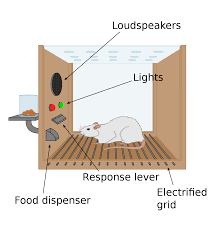Concept of Learning
Concept of Learning is a lifelong activity that occurs continuously and is essential for both personal and professional development. In order to provide effective training programs for call center staff, a trainer must have a thorough awareness of the various learning theories. The three main theories of learning will be covered in this article, along with their relevance to call center training and the learning requirements for successful training.

Thorndike Theory of Learning

American psychologist Edward L. Thorndike created the “law of effect,” which is known as the first scientific theory of learning. This idea contends that learning happens as a result of repeating experiences that produce pleasing results. According to Thorndike, learning is the process of linking a stimulus with a subsequent action, and the strength of that link depends on how satisfying the experience was.
Thorndike theory of learning has important ramifications for call center training. For the training to be successful, it should emphasize on incentives, prizes, and positive reinforcement to reinforce the desired behavior. The likelihood that a particular behavior will be repeated would rise, for instance, if call center agents were recognized and rewarded for frequently hitting their goals.
He held that a behavior is more likely to be repeated in the future when it is followed by a favorable outcome. Contrarily, a behavior is less likely to be repeated in the future when it results in a bad outcome. The law of effect is responsible for this. The development of operant conditioning, a type of learning that uses reinforcement or punishment to shape behavior, has been greatly influenced by Thorndike’s theory of learning.
Connectionism Theory of Learning
Connectionism theory of learning is a relatively recent development in the field of learning. It’s based on the idea that learning is the process of creating connections between different parts of the brain. This theory emphasizes the importance of feedback, repetition, and reinforcement in learning.

In call center training, the connectionism theory of learning is particularly relevant when it comes to developing agents’ communication skills. Agents need to be able to communicate effectively with customers, and this requires the development of strong neural connections between different parts of the brain involved in language processing and emotional regulation. Training programs that provide ample opportunities for agents to practice and receive feedback can help strengthen these neural connections and lead to more effective communication skills.
The foundation of the connectionism theory of learning is the notion that neural connections inside the brain get stronger as a result of learning. This idea states that learning is the process of developing and fortifying brain connections in response to experiences. The training of neural networks to carry out particular functions, such as image recognition or natural language processing, is frequently explained by this idea.
Skinner Theory of Learning
B.F. Skinner was a famous psychologist who developed the theory of operant conditioning. According to Skinner, learning is the process of acquiring new behaviors through rewards and punishments. Skinner believed that behavior can be modified through reinforcement or punishment, and that this modification can shape the way an individual behaves in the future.

In call center training, the Skinner theory of learning is relevant when it comes to shaping behavior that leads to desired outcomes. For example, agents who consistently display behaviors that lead to high customer satisfaction should be rewarded, while those who display behaviors that lead to dissatisfied customers should receive constructive feedback and corrective action. This approach helps to shape agent behavior in a way that leads to more positive outcomes for customers and the organization as a whole.
Operant conditioning is the foundation of B.F. Skinner’s theory of learning. Skinner defined learning as the process of modifying behavior through the application of reward or punishment. When a behavior is followed by a favorable outcome, like praise or a reward, this is known as positive reinforcement, and it enhances the likelihood that the behavior will be repeated in the future.
When a behavior is followed by the removal of a negative consequence, such the termination of a painful experience, this is known as negative reinforcement, and it also enhances the likelihood that the behavior will be repeated in the future. When an action is followed by an adverse result, such as a warning or a fine, punishment takes place and reduces the possibility that the action will be repeated in the future.
Conclusion
In conclusion, learning is a complex process that involves several factors, including motivation, attention, feedback, transfer of learning, and retention. Trainers must design training programs that take these factors into account and provide opportunities for learners to practice and apply their knowledge and skills to real-world situations. T
he Thorndike theory of learning, connectionism theory of learning, and Skinner theory of learning are all important theories that have contributed to our understanding of how learning occurs. By understanding these theories and the conditions of learning, trainers can design effective training programs that lead to improved performance and productivity in the call center.

![The Power of Storytelling in Corporate Training: Igniting Success and Inspiring Growth [2023]](https://trainercentric.com/wp-content/uploads/2023/06/storytelling-1024x576.jpg)
